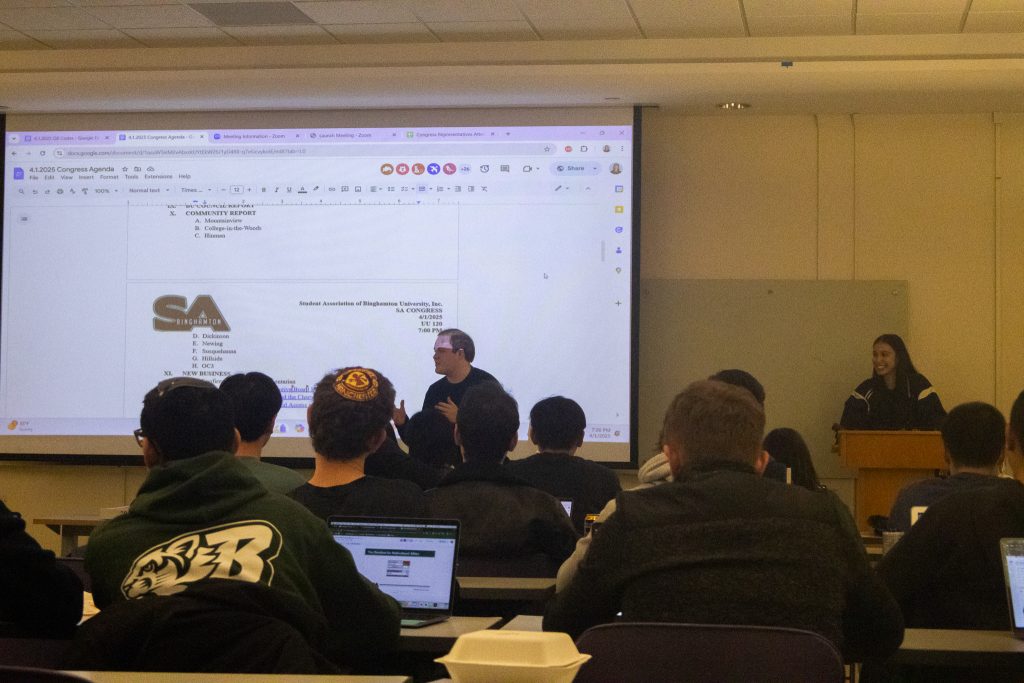Around a month after first debating a Student Association Congress resolution to amend one of the SA’s governing documents, the Management Policies, at a hastily scheduled tense emergency meeting, the body unanimously voted to pass it at a Tuesday night meeting.
Then, on Wednesday morning, the SA’s E-Board vetoed it, saying in a message to students that if allowed to proceed, the proposed changes would “contribute to a power imbalance in the Student Association.”
The resolution included four main components: overhauling Congress’ absence policy, mandating the completion of parliamentary procedure courses for the body’s leadership, allowing the chairs of special committees to retain voting power and the ability to step down from other committee positions, and clarifying succession for the position of parliamentarian.
It was authored by Saul Hakim, an off-campus representative and a senior double-majoring in political science and Judaic studies, who had said it addressed “major constitutional issues.” The E-Board’s veto message specifically pointed to the clause on privileges for special committee chairs.
“The Executive Board believes that all positions within the SA should have the same abilities, and that the legislation passed on Tuesday does not reflect this,” McKenzie Skrastins, the newly reelected SA president and a junior majoring in mathematics, wrote to Pipe Dream.
Hakim told Pipe Dream that he opposes the decision to veto — that while the E-Board has the authority to do so, it has “no legitimate basis to interfere with an internal update to the Management Policies that affects only Congress.”
“This was not a policy disagreement — it was a small group overriding the will of every single representative in Congress on ideological grounds, and it sets a troubling precedent for executive interference,” he said, adding that he plans to move to override the veto.
At the emergency meeting a month ago, a critic, Lotus Taylor, a Hillside Community representative and a junior majoring in sociology, took issue with the legislation’s quick pace. In that meeting, held because of a provision within the Management Policies that empowers at least 10 representatives to call a session, Taylor had said that the timeline forced representatives into “a position where they have to make a hasty decision.”
The resolution was then tabled to the Congress’ next meeting on March 18, when it was tabled again because of Hakim’s absence.
“I am of the belief as I was the week before spring break that these policies were not proposed with the benefit of the student body or the student association at large but simply created to ensure that Saul was not subjected to a judicial board complaint that was submitted,” Taylor, who is also the secretary of the SUNY Student Assembly, told Pipe Dream after the legislation passed. She added that she did not oppose the motion to pass the legislation unanimously because she was exhausted after the lengthy election proceedings.
“I also knew at this point that I said my peace at the last meeting — and there would be no real purpose in continuing to hold folks in the room,” Taylor wrote.
The Judicial Board on Wednesday heard the aforementioned grievance, which was filed by Kristina Donders, the speaker of Congress and a junior double-majoring in mathematics and political science. Donders and the Judicial Board previously declined to comment while the grievance process is ongoing.



